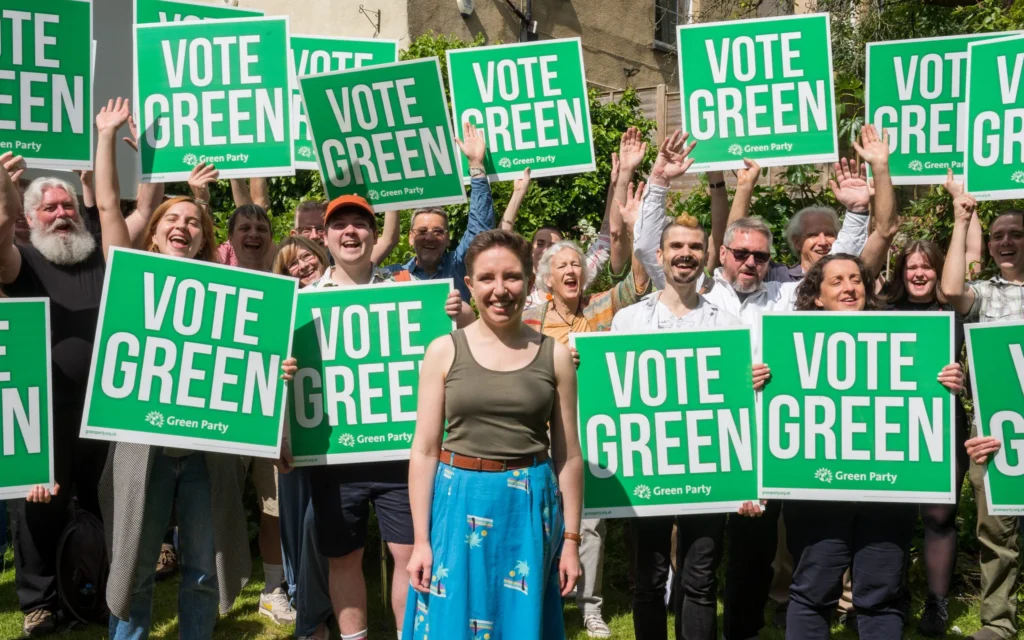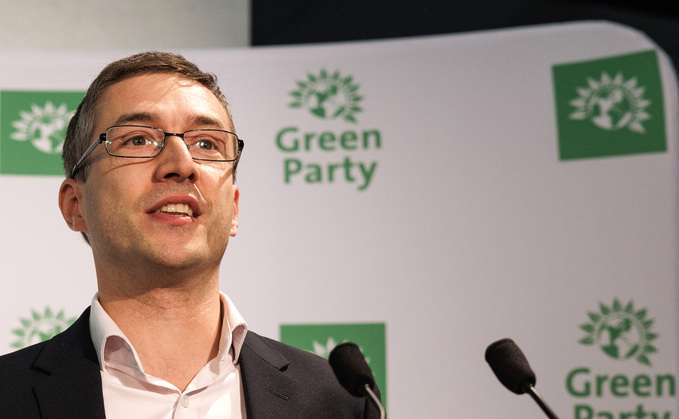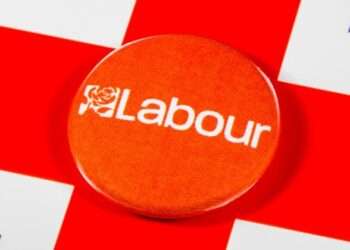In a potential electoral upset, internal polling suggests that the Green Party could capture two rural constituencies from the Conservative Party in the upcoming general election.
Adrian Ramsay, a Green co-leader and candidate for Waveney Valley on 4 July, attributed the Greens’ improved prospects in traditionally Tory areas to growing dissatisfaction with the Conservatives.
Ramsay pointed to recent local election successes as evidence that the Green Party is expanding its influence beyond its traditional urban strongholds and Labour-facing seats.
“Many former Tory voters feel abandoned by a Conservative party that has disregarded public standards and deeply cares about the environment,” Ramsay said.
“Rural voters are closely connected to environmental issues and are outraged about sewage in rivers.
“I’ve spoken to many Conservative voters who are now considering the future for their children and grandchildren and are voting Green for the first time.”
Adrian Ramsay
According to Ramsay, another significant concern for these disenchanted Tory voters is the decline in public services, particularly the shortage of NHS dental services in areas like Waveney Valley, which spans Norfolk and Suffolk.
Previous polling had already suggested the Greens could secure two urban seats: Brighton Pavilion, held since 2010 by the recently departed Caroline Lucas, and Bristol Central, where co-leader Carla Denyer aims to unseat Labour’s Thangam Debbonaire.
However, new surveys by pollsters Omnisis indicate the party is also leading in its rural targets, Waveney Valley and North Herefordshire.
Although the sample sizes of the polls are relatively small — 500 people in Waveney Valley and 430 in North Herefordshire — more than a third of voters in each seat remain undecided.
The results seem to validate Ramsay and Denyer’s strategic focus on key constituencies.
In Waveney Valley, a newly created seat carved out of traditionally Tory strongholds, Ramsay is reportedly ahead with 37% support, compared to 24% for the Conservative candidate Richard Rout, the deputy leader of Suffolk County Council.
Similarly, in North Herefordshire, former Green MEP and current Herefordshire council councilor Ellie Chowns leads with 39% against long-standing Tory incumbent Bill Wiggin, who has 28%.

Local and National Polls Disparity
This local polling contrasts sharply with recent national multilevel regression and poststratification (MRP) polls, which predict the Greens winning zero to two seats, excluding those being contested by Ramsay and Chowns.
Ramsay acknowledged the uncertainties but highlighted his long-term campaigning efforts in Waveney Valley, which have spanned over two years, compared to the recently selected Tory candidate.
He also noted the significant increase in the number of Green local councilors in the area over recent elections.
“This constituency encompasses areas where the Green Party has established strong support,” Ramsay explained.
“It includes parts of Mid Suffolk District Council, the first district council in the UK to have a Green majority.
“It also covers East Suffolk, where we are the largest party, and South Norfolk, where we have won two by-elections from the Conservatives in the past year. The Greens have a proven track record here, and people know what we stand for.”
Adrian Ramsay
Ramsay highlighted similar dynamics in North Herefordshire, where Chowns is one of nine Green County councilors and previously contested the seats in 2017 and 2019.
He emphasized the importance of tactical voting, stating, “People understand that to achieve change in these constituencies, they need to vote Green. It’s a choice between Conservative or Green.”
Any gains in seats during the election would result from the Greens’ focused campaign strategy, which was publicly announced ten months ago, and a broader “professionalization” process within the party, driven by Ramsay and Denyer.
READ ALSO: Mahama Underscores the Importance of Democracy at Christian Service University





















